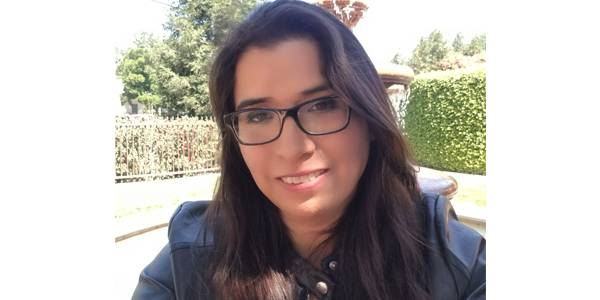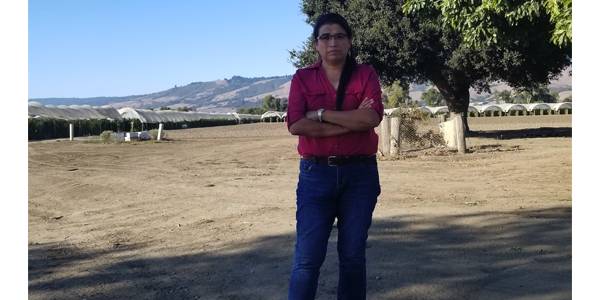A Latinx Perspective: An Interview with Translatina Roselyn Macias
Interviews
Trans Awareness Week may be over, but the challenges faced by the trans community at work and in society very much remain, reports Roselyn Macias, a translatina who Founded Mariposas Translatinx in San Francisco.
Roselyn, who leads Conexiones – a support group mostly made up of Latina transwomen – shares her trans experience and advocacy work with myGwork after many years of working in agriculture. She also talks about how the consequences of buying hormones from the black market to start her transition that gave her the push she needed to do the much-needed advocacy work that she is doing right now to help the Latinx trans community.
For the last decade, Roselyn has worked with marginalized women – especially transgender, non-binary and queer women of color – to help educate them about health and leadership, and to create safe spaces where they can express themselves. As well as working with the Translatina Coalition on policy change and leadership development, she also runs support group Mariposas Translatinx, helping mainly Latinx, indigenous and immigrant LGBTQ+ communities in the central coast area in San Francisco and rural California, to get the support they need.

Hi Roselyn, can you briefly tell us about some of the main advocacy programmes that you’re involved with to support translatina women?
I am involved in a few projects, one is the creation of a new support group that is called Mariposas TransLatinx for the central coast in the San Francisco Bay area, for a community that is greatly in need especially in the time of Covid-19. During the pandemic they were not able to connect with the community for their needs or resources. That was mainly because of language barriers, because answering machines would be in English. When they had a computer, many couldn't read in English, and some could not even read or write. So I was there to help them translate documents, read/write letters, etc. I was also their main contact and resource to help set up appointments, and get medical or legal aid/therapy.
Can you tell us a bit about your transitioning journey – and how your personal experience led and influenced you to set up the support programmes for Latina trans women?
Well with regard to my transitioning, I was lost in junior and high school as there were no resources. nor anyone to talk about it. Being Latinx my parents were old fashion and machista. I knew I was not the only one going through this when I started using the internet when it became available for information. I started to look in locations where I could get help, and I would go to cities like San Jose, CA, where I found a little help. When I started going to community college and started to drive, I would go to where transgender woman were hanging out, and I’d go and ask questions, such as where they go for hormones. They would tell me that someone from Mexico would bring them over to the USA and sell it to them. So I used the black market to buy hormones – and that is the way I started my transition. After using the black market to buy hormones, I began to taste and smell hormones in all my food so this led me to seek medical care and support.
At this time, I met Doctor Hastings at Planned Parenthood which is where I started to get more information about hormones and the importance of getting tested. This also led me to start thinking of other women and men who are going through hormone therapy through the black market, and the importance of using the right amount of hormones through testing.
So that’s how I started my journey of helping other transgender women – to get the right medical care and hormone therapy they needed, especially as I now know a lot more about the positives and negatives regarding hormone therapy. Being a member of Conexiones, I also helped others to have a better future. At Conexiones in California, as a legal assistance, my aim was to do outreach and connect with the trans community. This leadership role was an amazing journey that helped me to grow and change the lives of others I never thought I would be able to. I was also running a support group for trans women in the Central Coast in San Francisco. But now it's time for a new journey and I have started a new grass roots support group called Mariposas TransLatinx. I know it's going be a rough road, but I will succeed not just for myself, but for others. This support will start off in the central coast area and hopefully become state-wide. It will start off as a support group and a resource center for the trans community.

What are some of the biggest challenges that trans people of colour/Latina trans women are facing right now?
Some of the challenges are around discrimination at work, such as going to interviews and being misgendered or working for a company where they're discriminative. Another is not being able to use the women's restroom or the men's restroom. There are a lot of people that don't know their rights, and HR/crew leaders don't follow the laws, as companies simply don't know about them, especially in the agricultural fields. The other challenge is finding a local clinic offering hormone therapy in their own home town. Some of these women have to travel far to cities like San Francisco or to LA to get access to these services.
Are governments/businesses doing enough to support the Latina trans community? What more could they be doing?
Yes. I believe governments are making changes, and so are some businesses to help the trans community. But I think governments should introduce laws against not hiring because of your gender, because discrimination still goes on and no one says anything. They should do more investigation in industries like agriculture, where you see a lot of discrimination going on.
What’s your vision of the future for Latina trans women and trans people of colour?
My vision for translatina women and trans people is that we are hopefully understood and have all the rights that cis-gender men and women benefit from. All we want is to be part of, and included in, society. I hope that will happen soon.

